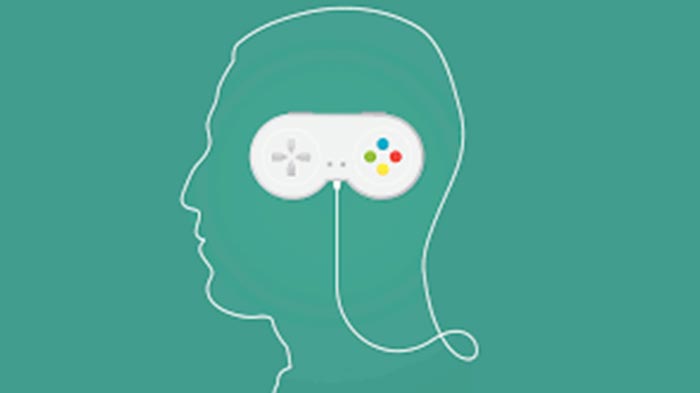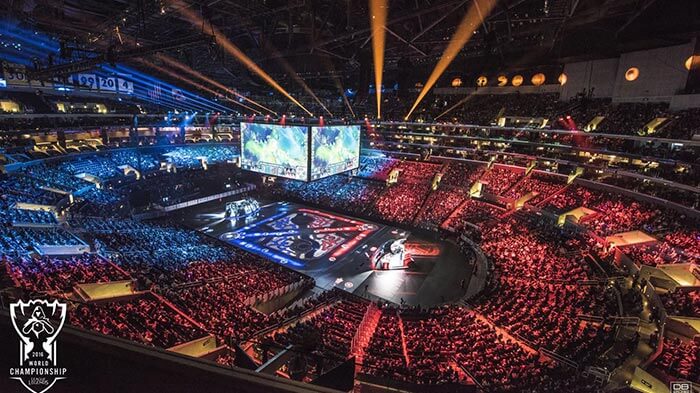What Is Gaming Disorder? Symptoms and Treatment of Video Game Addiction
Gaming disorder, also known as video game addiction, is a dependency that can have serious impacts on one’s life. This article will help you learn how you can prevent your children from developing a gaming disorder, the signs of addiction that you have to be vigilant about, and how to stop video game addiction when you spot it.
Definition of Video Game Addiction
Video game addiction is defined as compulsive behavior that causes overuse of video games and results in serious damage to one’s life.
Gaming disorder or video game addiction comprises computer video game addiction, mobile, console, and online gaming addiction and is very common among children and young adults. Therefore, dealing with gaming disorder is a common problem among parents.
MentalUP provides daily exercises to protect children from smartphone and technology addiction. There are lots of fun learning games for toddlers, kids, and teens that improve their mental skills in the multi-awarded app MentalUP. 🎮
Stats and Facts
Gaming disorder is a problem that requires immediate action, but how can you be sure that your child is addicted to games?
Video game addiction data show that an average person plays 6 hours a week, but an addict can reach an average of 6 hours per day. This amount of game time for children is very unhealthy and harmful in various aspects.
| Age | Less than 1 hour a week | 1-2 hours a week | 2-4 hours a week | 4-7 hours a week | 7-12 hours a week | 12-20 hours a week | More than 20 hours a week | Average hours each week |
|---|---|---|---|---|---|---|---|---|
| 18-25 | 15.7% | 14.7% | 21.2% | 15.5% | 14.2% | 8.1% | 10.6% | 7.08 |
| 26-35 | 16.9% | 15.6% | 19.7% | 18.4% | 12.9% | 8.7% | 7.9% | 6.51 |
| 36-45 | 18.8% | 18.8% | 16.6% | 17.2% | 12.9% | 8.7% | 6.9% | 6.17 |
| 46-60 | 24.9% | 20.6% | 16.0% | 16.9% | 10.1% | 6.6% | 5.0% | 5.10 |
| Over 60 | 23.2% | 20.8% | 19.6% | 14.0% | 12.8% | 5.2% | 4.4% | 4.93 |
| All | 20.1% | 18.1% | 18.1% | 16.8% | 12.2% | 7.7% | 6.9% | 5.96 |
People aged 18-25 are most likely to develop an internet gaming disorder because they are in constant engagement with smartphones and devices, which allows them to access games almost whenever and wherever they want.
Individuals over the age of 35 also have the tendency to develop online gaming addiction, but this does not happen as often because they prefer playing on laptops and desktops rather than online.
No matter the country, age, or profession, internet gaming addiction is quite common and has negative effects on an individual’s life. 32% of the gamers would quit their job if they could support themselves as professional gamers. 8% of divorces are linked to online gaming addiction. Over 3% of young adults have lost or jeopardized a relationship, job or educational opportunity as a direct result of their internet gaming disorder.
What is Gaming Disorder?
The WHO has categorized gaming disorder as an addiction in the 11th Revision of the International Classification of Diseases (ICD-11). The World Health Organization gaming disorder definition is “A pattern of gaming behavior (“digital-gaming” or “video-gaming”) characterized by impaired control over gaming, increasing priority given to gaming over other activities to the extent that gaming takes precedence over other interests and daily activities, and continuation or escalation of gaming despite the occurrence of negative consequences.”

Is Video Game Overuse an Addiction?
Although the WHO has classified gaming disorder as a mental health condition that requires treatment, there is much controversy on the topic. There are still numerous research projects that are being conducted to find out why video games are addictive, the effects of video game addiction, and solutions to video game addiction.
Most children tend to play games out of boredom. Beneficial apps for boredom, like the MentalUP apps offers 150+ entertaining games that you can put a time limit on and are both fun and educational. They help kids achieve success at school, improve focus skills and enhance learning with only 20 minutes of daily brain exercises.
Rise of Esports and Online Gaming
Esports and online gaming are extremely popular. Especially with the significant development of smartphone technology, online gaming platforms have been on the rise and esports have become a $138 billion industry (2018).
There are numerous national and international events held as esports with thousands of participants. Some esports players have millions of worldwide followers. While many people enjoy playing instead of watching, individuals aged 18-25 spend more time watching other gamers play than they spend watching traditional sports on TV.

There are a few people that actually support themselves through these platforms and earn a lot of money by playing esports and other online games. But normally, it is highly unlikely that everyone can achieve this much success.
However, many people consider esports an easy way to make money and hence spend hours trying to achieve this, eventually developing an internet gaming disorder.
Some games have been so popular that certain governments started to build gaming pads in libraries. With this provision of easy access, online gaming addiction is becoming more and more common.
Signs and Effects of Gaming Addiction: Is Your Kid Addicted?
The causes of video game addiction and its symptoms are widely investigated by psychologists and social scientists. Some of the signs of video game addiction can be easily recognizable and thereby prevented from worsening. If you spot five of the symptoms below in your children, it may be time to seek gaming addiction help. Better yet, take our video game addiction test to overview your and your children’s gaming habits.
Physical Signs
There are plenty of physical signs of gaming addiction. Eating disorders, insufficient sleep and failure in school are some of the most common among children.
How many times have you had to drag your child out of the game so they can do their homework or even go to bed? Recognizing the physical video game addiction symptoms at an early stage is extremely important to be able to get the gaming addiction help you need.
Mental Signs
Video game addiction withdrawal can occur if the individual is extremely addicted. Children with gaming dependency lose the ability to concentrate and focus, and they start to care less about their responsibilities.
Their room can turn into a mess and you may have to repeat what you say a few times because they simply won’t hear you. Particularly people with fighting video game addiction can develop aggressive behavior due to the nature of the games.
| Physical Signs | Mental Signs |
| Fatigue | Withdrawal symptoms when Internet gaming is taken away (sadness, anxiety, irritability) |
| Migraines due to intense concentration or | Higher tolerance develops and the need to spend more time on gaming increases |
| eye strain | Not being able to play less, unsuccessful attempts to quit playing |
| Carpal tunnel syndrome caused by the overuse of a controller or computer mouse | Giving up other activities, and loss of interest in activities that were once enjoyed |
| Poor personal hygiene | Continuing to play despite problems |
| Eating disorders | Lack of concentration and focus |
| Reduced learning | Increased aggression or violence |
| Financial consequences | Deceiving family members or others about the amount of time spent on gaming |
| Lower grades | |
| Sleeping disorders |
Social Effects
There are major social consequences of gaming addiction. As mentioned before, a partner addicted to gaming can even lead to a divorce. Students may neglect school and homework. Especially people with online gaming addiction can fill the need for socializing through their gaming platforms and hence fail to socialize with their friends and family.
Addictive phone games are one of the main reasons why the negative social impact of internet gaming disorders has rapidly increased. The cheap, easy-to-access mobile addictive phone games have become more and more a part of our life.
Children who have a gaming disorder can experience trouble doing homework, listening in class and reading. MentalUP enhances focus, attention and concentration skills and boosts learning abilities of both children and adults.

Video Game Addiction in Children
Unfortunately, the age at which children are being introduced to technology is getting lower and lower. Children are always more vulnerable. Therefore, kids addicted to video games can face severe physical, psychological and social consequences of gaming addiction, which can be hard for both the child and the parent.
Keeping a close eye on your child’s gaming activities is extremely important to prevent them from developing internet gaming addiction.
Mental Development
Like other dependencies, the effects of video game addiction can result in a lack of mental development. From learning skills to verbal intelligence, children absorb almost everything at their young age, and when they spend too much time on addictive phone games they become deprived of the mental development that they need.
Socializing
It is important for children to develop social skills and the best way for them to achieve that is to socialize with their peers. A child addicted to video games is less likely to be interested in playing outside with their friends. When was the last time your child went to the playground or took part in any other outdoor activity?
Psychological
Children are more likely to get affected by the violence that occurs in games. Children who have a fighting video game addiction can develop aggression, personality issues along with many other psychological problems.
Physical Effects
In addition to the previously mentioned physical effects, a child addicted to video games won’t be as physically active as they should be. This would disable them from developing proper motor skills.
MentalUP offers more than 150 gamified exercises to boost children's brain development. It also has 240+ fitness activities that support getting kids active physically and mentally.
Fights against screen addiction with limited time, daily workouts of MentalUP! 🤸♀️
How to Treat Gaming Addiction?
There are many causes of video game addiction. In order to find the right gaming disorder treatment, it is important to identify the root cause. Why does your child spend so much time playing games?
The main reason people become addicted to online gaming is the need to achieve and succeed. Games are specifically designed for this reason. Another reason people develop online gaming addiction is the need to socialize.
Gaming disorder treatment is generally based on the underlying cause such as the need for socialization and the length of time the person has been addicted. Children who have been experiencing online gaming addiction for up to 12 months can be treated with minimal intervention, while children who have had an internet gaming disorder for longer than 12 months may need specialized guidance.
Tips to Control Gaming Addiction
Here is a gaming addiction help guide that you and your children can benefit from.
Set Boundaries
It’s quite hard to go cold turkey. Set time limitations and make sure you stick to them.
IMPORTANT: Games for children on MentalUP are self-limiting, so this prevents technology addiction and reduces the time spent by children on the screen.
Prepared with the full support of child development experts and pedagogues, MentalUP limits the duration of daily use and offers parental control.
In this way, while children develop their cognitive skills with fun exercises, they are also away from the negative effects of technology and less likely to develop an online gaming disorder. In addition to that, parents can follow their child's development on a daily basis.
Minimize the Number of Your Sources of Games
To resist the constant temptation, choose only one device to play games on - if you use a phone, a computer, and a console, get rid of games on all but one of them.
Choose Games that Require Physical Activity
Online gaming addiction wears out your mental energy while you still haven’t moved an inch. Playing games that will tire your body can help avoid long hours of play.
Stay Away from Your Phone
Addictive phone games can be more harmful simply because your phone is with you all day. Limiting the usage of your phone will prevent you from constantly playing games.
Find a Hobby
Finding a hobby almost always helps. Explore your opportunities.
Include Your Loved Ones
One of the most severe gaming disorder symptoms are damaged relationships. Make amends. Including family and friends in your game time can be therapeutic and help you define your boundaries.
Supporting Apps
The need to succeed is one of the main reasons people start to develop online gaming addiction. However, gamified educational apps such as MentalUP are immensely rewarding and can be navigated more efficiently with the time limitations that you can set for your children. Especially when it comes to kids addicted to video games, MentalUP is one of the best ways to help distract them from their dependency.
Gaming Disorder Test
With this gaming disorder test, which you can apply to your child or yourself, you will find out how dependent you are.
Please read all of the questions carefully and mark the ones that you answer with “yes”. If your answer is “no”, move on to the next question. Before selecting an answer, consider how often you encounter the mentioned problems.
NOTE: The content of this test has been compiled from the users diagnosed with a gaming disorder. The test is intended only to give an opinion: There is no definitive provision or official validity.
You are doing great! You have a very low risk of developing a gaming disorder 👏 If your answers to all questions were sincere, there is no need to worry.
But don’t forget, over time, your or your child’s habits may change. Consider reading our recommendations on stopping internet and technology addiction to protect your routine and avoid the risk of developing a gaming disorder.
You are in a pretty good state ✔️. Right now, you show very little of the gaming disorder symptoms. You spend the right amount of time on playing games, as it should be.
But don’t forget, over time, your or your child’s habits may change. Consider reading our recommendations on stopping internet and technology addiction to protect your routine and avoid the risk of developing a gaming disorder.
You spend more time playing games than you should ⚠️ You're not addicted yet - however, you should pay attention to your habit of gaming.
You're spending a lot of time playing games and you're at risk of developing a gaming disorder ⚠️ At this stage, online and video games can damage your life and your social relationships. You have to act before it's too late.
⚠️Caution: You have many symptoms of online/video game addiction!⚠️
You must take immediate action to avoid dependency and developing a gaming disorder, and take precautions.





